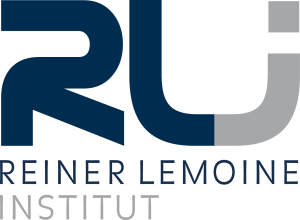Reiner Lemoine Institut GmbH – The potential for hybrid PV systems (Africa)
Who, What & Where
- Reiner Lemoine Institut GmbH
- The potential for hybrid PV systems
- Africa
The Institute
The Reiner Lemoine Institut gGmbH (RLI) is a German non-profit research institution founded in 2010 that performs research on renewable energy, integration of different energy technologies, grid management, energy storage, hybrid power plants and off-grid electrification.
Challenge
The African energy sector faces high power-generation costs. The intensive use of oil-based power generation, such as diesel generators, is one of the reasons. Also due to the fact that fuel prices tend to fluctuate rapidly, related electricity production costs are highly unpredictable. Therefore, African countries often spend significant parts of their GDP on subsidising electricity prices in order to enable access to electricity to a wider part of the population. Nevertheless, more than 590 million people, most of them living in rural areas, find themselves without electricity access; its provision consequently remains a major challenge.
Renewable Solution
With the rising price competitiveness of renewable energy technologies, decentralised renewable off-grid solutions represent a viable alternative, especially in rural areas. In particular hybrid systems consisting of photovoltaic modules, battery storage and backup diesel generators are of great interest, since they make use of the high solar power potential in Africa and can be integrated into the pre-existing infrastructure of small diesel grids.
The methodology developed at the RLI combines GIS-based data analysis with a simulation model of hybrid systems to quantify the economic potential and localise the most attractive areas for diesel substitution and rural electrification. By combining several datasets off-grid electricity generation can be identified and the local economic attractiveness of a renewable hybrid system can be evaluated. For this particular study the simulation model is fed with the site-specific input parameters (e.g. PV potential, fuel transportation costs, load demand) supplemented by the general input parameters (e.g. cost parameters and diesel fuel base price). Please find more information here: (http://www.reiner-lemoine-institut.de/en/publications/off_grid_systems).
Project Financing and Costs
The methodology has been developed at the RLI and is constantly refined in projects, research cooperation and in collaboration with industrial partners. The RLI itself is co-funded by the Reiner Lemoine-Stiftung.
Project Outcome
The analysis shows that hybridisation of diesel-based off-grid systems with PV and storage systems can lead to a significant power-generation cost-reduction for producers. If current world market diesel prices are assumed as base prices the renewable-based hybrid system outperforms the diesel-only system nearly all over the African continent. The renewable share (PV + battery) in the majority of hybrid system covers a range of 35% to 40 %. In very remote areas affected by high additional costs for the transportation of fuels, the share of renewables rises to very high percentages (Figure 2). Overall, renewable energies bear a high potential for reducing power-generation costs and increasing access to electricity in the African context.

